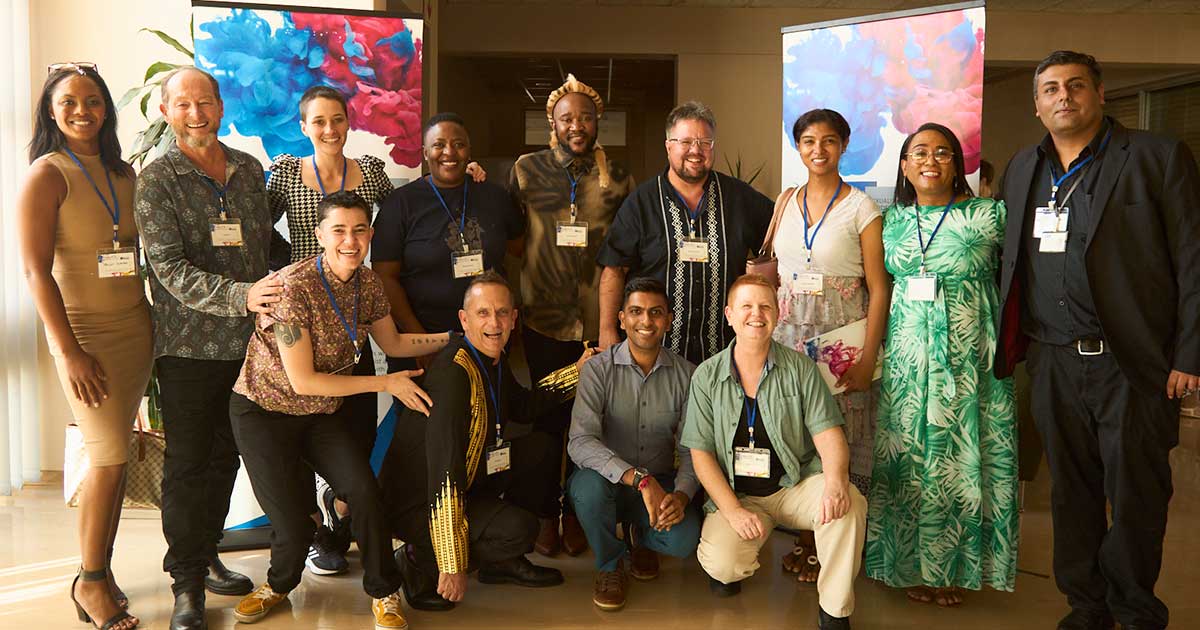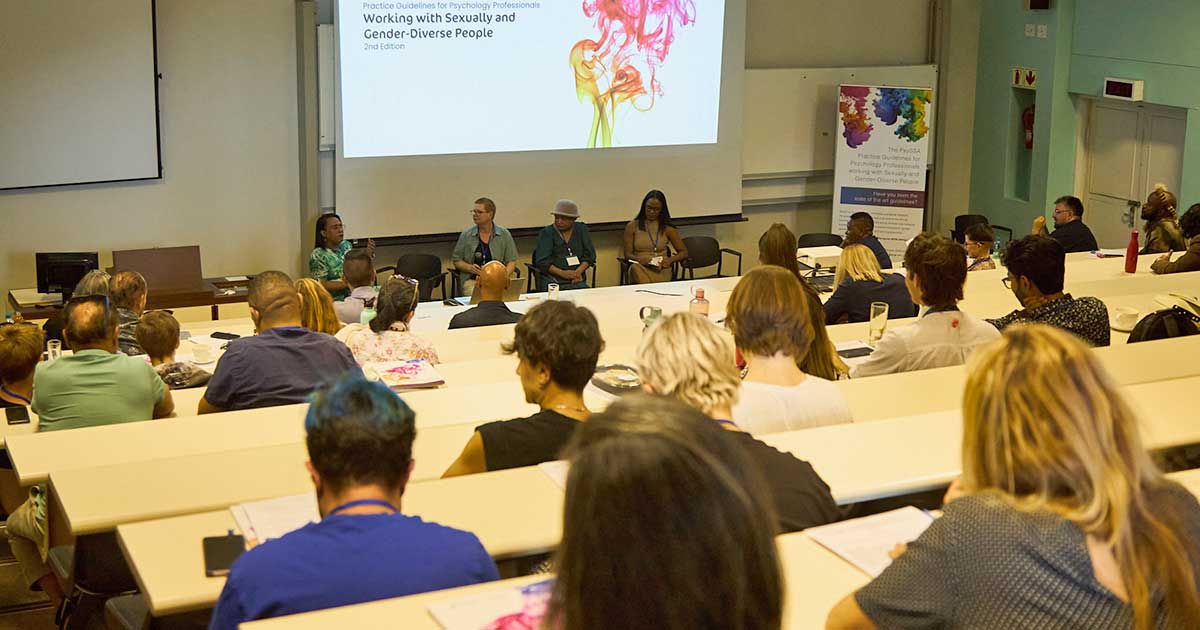Updated LGBTQIA+ Guidelines Launched for South African Mental Health Professionals

Affirming queer mental health: The Gender Dynamix team with members of the African LGBTQIA+ Human Rights Program at the PsySSA launch in Cape Town (Photo: Chris de Beer-Procter)
Mental health professionals in South Africa now have access to an essential new resource: updated, evidence-based guidelines for working ethically and affirmatively with LGBTQIA+ individuals.
On 18 March, the Sexuality and Gender Division (SGD) of the Psychological Society of South Africa (PsySSA) launched the second edition of its Practice Guidelines for Psychology Professionals Working with Sexually and Gender-Diverse People at an event hosted at Valkenberg Hospital in Cape Town.
This new edition builds on the pioneering 2018 guidelines that first set the standard for inclusive mental health care in the country.
The launch event brought together 74 delegates from across the fields of psychology, psychiatry, academia, and LGBTQIA+ advocacy.
The programme featured presentations by the guideline authors, reflections on ethical practice, and a thought-provoking panel discussion on decolonising and de-pathologising trans identities, hosted in partnership with Gender Dynamix.
A New Standard for Affirmative, Ethical Care
The updated guidelines offer a comprehensive ethical and practical framework for psychologists and mental health professionals working with sexually and gender-diverse people.
They directly address the harmful legacies of stigma, discrimination, and psychological harm that LGBTQIA+ communities have long endured and outline 12 key principles that promote inclusive, non-discriminatory, and socially responsive practice.
These include adopting an affirmative stance, recognising normative social contexts, supporting diverse family structures and relationships, upholding self-determination, addressing intersecting forms of discrimination and fostering resilience through relational well-being.
The document also contains extensive supplementary materials to support practical application.
These include a glossary of relevant terms, a reference list, sample intake forms, a self-reflection guide for addressing practitioner bias, a sample letter for Home Affairs supporting a change in gender marker application, and policy statements on issues such as conversion therapy and evidence-based care for transgender and gender-diverse young people.
Rigorous Research and Engagement
“The scientific credibility of this work rests on the fact that 24 international experts peer-reviewed the first draft, written by nine experts, and vetted by three PsySSA committees, as well as its Executive and Council,” explained Suntosh Pillay, co-lead of the revision and Chief Psychologist in the KwaZulu-Natal Department of Health. “It’s an incredible level of scientific engagement and collaboration.”
The revision process was made possible through a close partnership with the University of South Africa (UNISA), which provided critical leadership, coordination, and resources. The guidelines were developed over several years of rigorous research and engagement, led by Professor Juan A. Nel, a leading figure in LGBTQIA+ human rights and psychology in South Africa.
“The significance of having PsySSA’s endorsement of this body of work should not be underestimated,” said Prof Nel. “PsySSA is the largest, nationally representative psychology association in South Africa, and recognised internationally and continentally as a leader in the discipline.”
Nel applauded UNISA for its support in the finalisation of the revised guidelines given the current resource-constrained funding environment. “One merely needs to peruse the author biographies to see the extent to which UNISA leads in scholarship related to affirmative healthcare provision for sexually and gender-diverse people,” he added.

A powerful panel discussion on de-pathologising and decolonising trans identities, moderated by Gita November from Gender Dynamix, was held at the launch (Photo: Chris de Beer-Procter)
Symbolic Venue, Meaningful Impact
Hosting the launch at Valkenberg Psychiatric Hospital was a deliberate and significant choice. The institution was historically part of a system that marginalised and pathologised LGBTQIA+ people. PsySSA acknowledged this history and framed the event within Valkenberg’s ongoing transformation process.
“The launch of the guidelines in a public mental health setting that is actively engaged in processes of institutional transformation was meaningful from both an ethical and professional standpoint,” said Thembisile Dlamini, co-author of the guidelines and member of the African LGBTQIA+ Human Rights Project, “It created space for reflection on past and present practices while reinforcing the importance of sustained commitment to inclusion, accountability, and affirming care.”
The event was supported by the hospital’s Transformation Committee, the University of Cape Town, and the Western Cape Department of Health and Wellness, whose involvement signalled a broader institutional shift towards inclusion and accountability in public health services.
A Call to Action
Dr Niel Victor, contributor to the guidelines and Programme Director of the launch, described the event as a celebration of progress and a moment of shared purpose. “The guidelines represent a full overview of the state of science in the field in South Africa. I was excited to share this with so many colleagues and friends in the mental healthcare space, and touched by the positive reactions to both the guidelines and the launch event.”
The event ended with a strong call to action: that these guidelines must not remain symbolic. Instead, they should be fully integrated into clinical practice, academic training, health policy, and professional ethics.
The guidelines can be downloaded here.
Leave a Reply